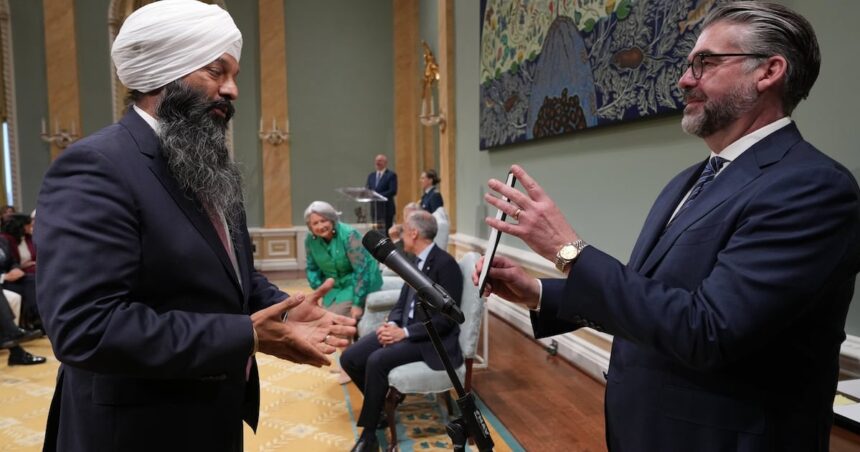Ottawa’s foreign aid chief is pushing for less red tape and more visible impact as Canada maintains its international assistance commitments while other nations scale back.
The approach reflects Ottawa’s attempt to walk a delicate line—maintaining global development assistance while ensuring Canadian taxpayers can clearly see the results of their international investments.
“We need to make every dollar count and show Canadians exactly how their contributions are making a difference,” said Minister of International Development Ahmed Hussen during yesterday’s policy address at the University of Ottawa.
This renewed focus comes as several G7 nations have reduced their foreign aid budgets amid domestic economic pressures. The United Kingdom cut its international assistance by nearly 30% last year, while the United States Congress has repeatedly questioned foreign aid spending levels.
Despite these global trends, Canada has maintained its current commitment of approximately $6.6 billion annually in international assistance. However, this represents a smaller percentage of our gross national income than the United Nations target of 0.7%, with Canada currently contributing about 0.31%.
Local development experts suggest Ottawa’s approach makes strategic sense. “Canadians generally support helping others, but they want accountability and transparency,” explained Dr. Margaret Wilson, Director of Global Studies at Carleton University. “The government is trying to balance international obligations with domestic concerns about spending priorities.”
The minister outlined several key initiatives to streamline aid delivery and increase its visibility. These include reducing application paperwork for partner organizations by up to 40%, creating a new online tracking platform where Canadians can monitor project outcomes, and focusing resources on fewer countries for greater impact.
Climate adaptation will remain a priority, with approximately $1.2 billion directed toward helping vulnerable nations prepare for and respond to environmental challenges. This approach has garnered support from environmental advocates.
“Climate change hits the poorest communities first and hardest,” said James Robertson of the Ottawa-based Climate Action Network. “By investing in adaptation now, we’re preventing more costly humanitarian emergencies later.”
Critics, however, question whether the emphasis on visibility might distort aid priorities. Opposition MPs have raised concerns about “photo-op foreign policy” that prioritizes media coverage over long-term development needs.
“We need to ensure we’re funding what works, not just what looks good,” said Conservative foreign affairs critic Michael Chong during yesterday’s Question Period. He called for more rigorous evaluation of program effectiveness.
The government counters that the new approach actually improves accountability by clearly measuring and communicating outcomes. Officials point to successful healthcare initiatives in East Africa that have reduced maternal mortality by 26% in targeted regions.
For Ottawa residents, the discussion hits close to home. Our city hosts numerous international development organizations and governmental departments involved in foreign aid implementation.
Local resident Sarah Mbeki, who immigrated from Kenya and now works with an Ottawa-based development organization, believes the balance is necessary. “As someone who has seen aid projects both succeed and fail in my home country, I appreciate Canada’s commitment to getting this right,” she told me after attending the minister’s address.
The real test will come with next year’s federal budget. While the government has committed to maintaining current spending levels, inflation and growing global needs mean the same dollar amount buys less assistance than in previous years.
Global Affairs Canada has promised a detailed implementation plan by September, including specific metrics for measuring success and streamlining procedures. The minister has invited public feedback through an online consultation portal launching next week.
As Ottawa navigates these complex policy waters, the debate reflects broader questions about Canada’s role on the global stage and how we balance international responsibilities with domestic priorities.







